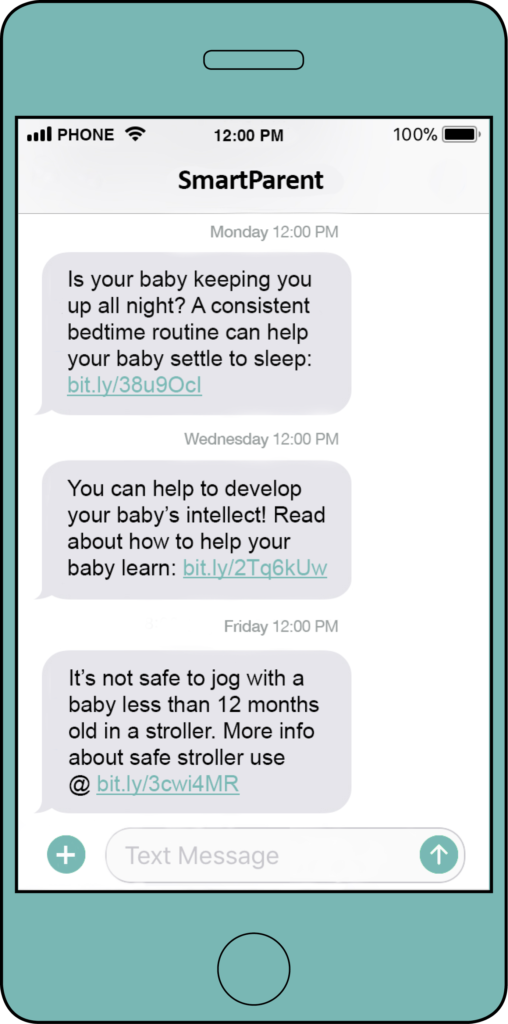New text-message program helps ease transition to parenthood
For new parents, life with an infant is full of highs and lows: the first smile, the first fever, the first step, and the many sleepless nights.

SmartParent is Canada’s first parenting education program delivered by text message.
For new parents, life with an infant is full of highs and lows: the first smile, the first fever, the first step, and the many sleepless nights.
To help with the transition to parenthood, UBC researchers have launched SmartParent, Canada’s first parenting education program delivered by text message.
Program founder Dr. Patricia Janssen (she/her), professor at UBC faculty of medicine’s school of population and public health, explains how SmartParent works and why it’s so important to provide new parents with the “information they need, when they need it.”

Where did the idea for SmartParent come from?
Research by the Public Health Agency of Canada has shown that parents in Canada often struggle to find the information they need.
We know, too, that access to postnatal care and resources is complicated by many other factors, including education level, stigma and discrimination, language, income, whether parents live in rural or remote areas, and of course, isolation due to the COVID-19 pandemic. The idea behind SmartParent is to eliminate those barriers.
How does SmartParent work?
Parents receive three messages every week, each with a link to further information online. These messages are tailored to the infant’s age and stage of development to help guide parents through each week of their baby’s first year.
The benefit of SmartParent — as opposed to an app — is that text messages allow us to provide busy and often tired parents with the information they need, when they need it, in an engaging, accessible format.
SmartParent is intended to complement the information and support provided by parents’ health care providers, not replace it.
What kind of information will parents receive?
There is information on everything from growth and developmental milestones, infant safety, feeding and sleeping, follow-up and screening procedures, and vaccinations.
Importantly, SmartParent also provides information for parents about mental health and self-care. They will receive resources on how to deal with exhaustion, how to maintain healthy relationships, and how to manage the stresses of parenting.
The information is comprehensive and evidence-based. Parents can be reassured that SmartParent was developed by researchers from UBC in collaboration with Optimal Birth BC, the BC Ministry of Health and BC health authorities, and in consultation with pregnant and new parents, practicing nurses, doctors, midwives and experts in maternal and child health.
SmartParent follows the launch of SmartMom, a prenatal text-messaging program you also spearhead. How do the two programs complement each other?
We designed the two programs to work in tandem. SmartMom supports mothers with information during each week of their pregnancy, while SmartParent continues that support for parents from the birth of their child through to that all-important first year of life.
SmartParent is modelled after the SmartMom program, which has been very successful supporting healthier pregnancies. During the pilot phase, SmartMom users showed lower rates of gestational diabetes, healthier pregnancy weights, and were less likely to smoke during their pregnancies than non-users in our survey. Their newborns were also healthier. So, we know the model works.
Why is a tool like SmartParent especially important during the COVID-19 pandemic?
The pandemic has made things even more difficult for new parents because they haven’t been able to attend parenting classes or visit parenting drop-in centres. So many of the resources they would normally depend on are limited or closed due to safety protocols. SmartParent will help fill these gaps.
How can parents sign up for SmartParent and SmartMom?
Parents can register by texting the keyword smartparent to 12424, or by signing up at www.smartparentcanada.ca. Those interested in SmartMom can text smartmom to 12323 or visit www.smartmomcanada.ca.
Interview language(s): English



